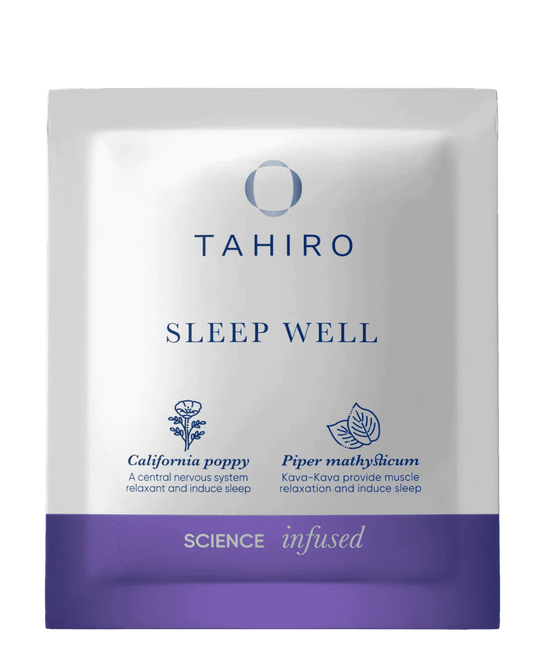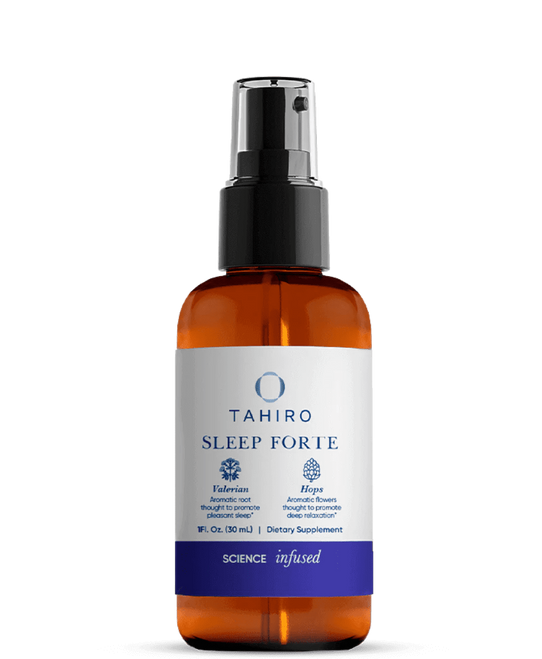Sleep plays a crucial role in overall wellness. Unfortunately, research shows that over one-third of adults (1) sleep less than the recommended amount of 7 hours. Poor sleep can increase the risk of chronic illnesses, decrease immune function, affect mood, and reduce cognitive function.
People often turn to various supplements and remedies in the search for better sleep. One such remedy is magnesium. However, is it true that magnesium can promote a good night’s sleep?
In this article, we will explore the role of magnesium in promoting a good night’s sleep and whether it is a viable solution to help you catch some sleep.
What Is Magnesium?
Magnesium is an essential mineral that needs to come from your diet since the body cannot produce it. Magnesium is involved in over 300 biochemical reactions, making it crucial for muscle function, nerve function, and regulating blood sugar levels and blood pressure.
Magnesium is found in several foods, such as leafy greens and chocolate, but it is also available in supplement form.
Can Magnesium Help You Sleep Better?
Research shows magnesium may help promote a good night’s sleep (2). But how exactly can magnesium improve sleep? Here are some of the possible ways magnesium can help you sleep better.
-
Relaxes muscles. One of the ways in which magnesium may improve sleep is by promoting muscle relaxation. This mineral can help regulate muscle contractions and can prevent muscle cramps and spasms that may otherwise disrupt sleep. When your muscles are relaxed, you are less likely to toss and turn all night.
-
Reduces stress. Stress and anxiety are common culprits behind a poor night’s sleep. You've likely experienced spending most of your night contemplating everything you need to fix. Magnesium has been shown to have calming effects on the nervous system, helping reduce stress and anxiety (3).
-
Melatonin regulation. Melatonin is a hormone that plays a crucial role in the sleep-wake cycle. Magnesium helps regulate melatonin production, which can be essential for falling asleep and staying asleep throughout the night.
-
Increases GABA production. Gamma-aminobutyric acid (GABA) is a neurotransmitter that promotes relaxation and reduces neural excitability. Magnesium aids in activating GABA receptors in the brain, leading to a sense of calm and tranquility (4).
How Much Magnesium Do You Need?
The recommended daily magnesium intake varies depending on age, gender, and other health conditions. Generally speaking, the recommended intake of magnesium is set at 300-400 mg (5).
Currently, there is no specific dosage of magnesium that promotes better sleep. However, getting an adequate amount of magnesium is important for overall health, which in turn can promote a good night’s sleep.
If you are considering a supplement that contains magnesium to improve your sleep, you may consult with a health professional to help you evaluate your individual needs and give you a personalized recommendation of the best form of magnesium and dosage.
Risks And Side Effects Of Taking Too Much Magnesium
Taking too much magnesium, either from supplementation or overconsumption of magnesium-rich foods, can lead to adverse effects. Here are some of the possible risks and side effects of taking too much magnesium.
Diarrhea
Abdominal cramps
Nausea
Dehydration
Electrolyte imbalances
Irregular heartbeat
Kidney problems
Low blood pressure
Respiratory issues
Keep in mind that magnesium toxicity from dietary sources alone is very rare since the body usually regulates magnesium absorption and excretion effectively. However, excessive magnesium intake from supplements is more likely to lead to side effects, especially if taken in large doses without medical supervision.
Sources of Magnesium
If you are looking for natural ways to increase magnesium, here are some of the best dietary sources.
Leafy greens (spinach, kale, Swiss chard, and collard greens)
Nuts and seeds (almonds, cashews, peanuts, and pumpkin seeds)
Whole grains (quinoa, oats, brown rice, and whole wheat)
Legumes (lentils, beans, and chickpeas)
Avocado
Banana
Fatty fish (mackerel, halibut, and salmon)
Dark chocolate
Tofu
Dried fruits (figs, apricots, and raisins)
While these foods are a great source of magnesium, it’s important to maintain a balanced diet that includes a variety of nutrient-rich foods. Have a diverse range of magnesium sources that can help you get enough of this essential nutrient.
Other Supplements To Help Improve Sleep
While magnesium can promote good sleep, other supplements can help improve sleep quality and other sleep-related issues. Here are some supplements that have been associated with improved sleep.
Melatonin
Valerian root
L-theanine
5-HTP
Ashwagandha
Chamomile
Passionflower
California poppy
It’s important to remember that supplements should not be used as the sole solution for sleep problems. Lifestyle factors, such as maintaining a regular sleep schedule, creating a comfortable sleep environment, and practicing relaxation techniques, also play a significant role.
Discover additional tips and strategies to improve your sleep patterns in this article, and start enjoying the benefits of a good night's sleep.






